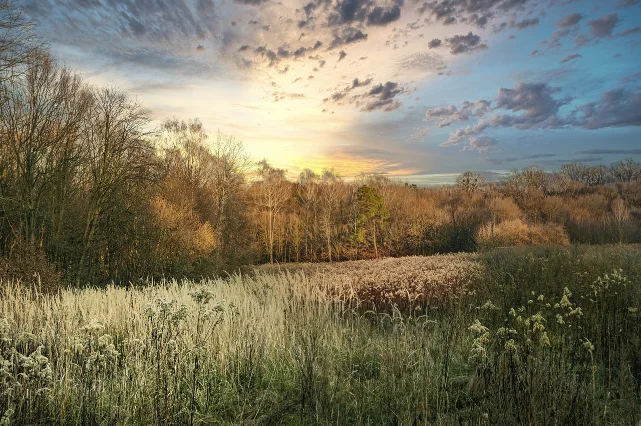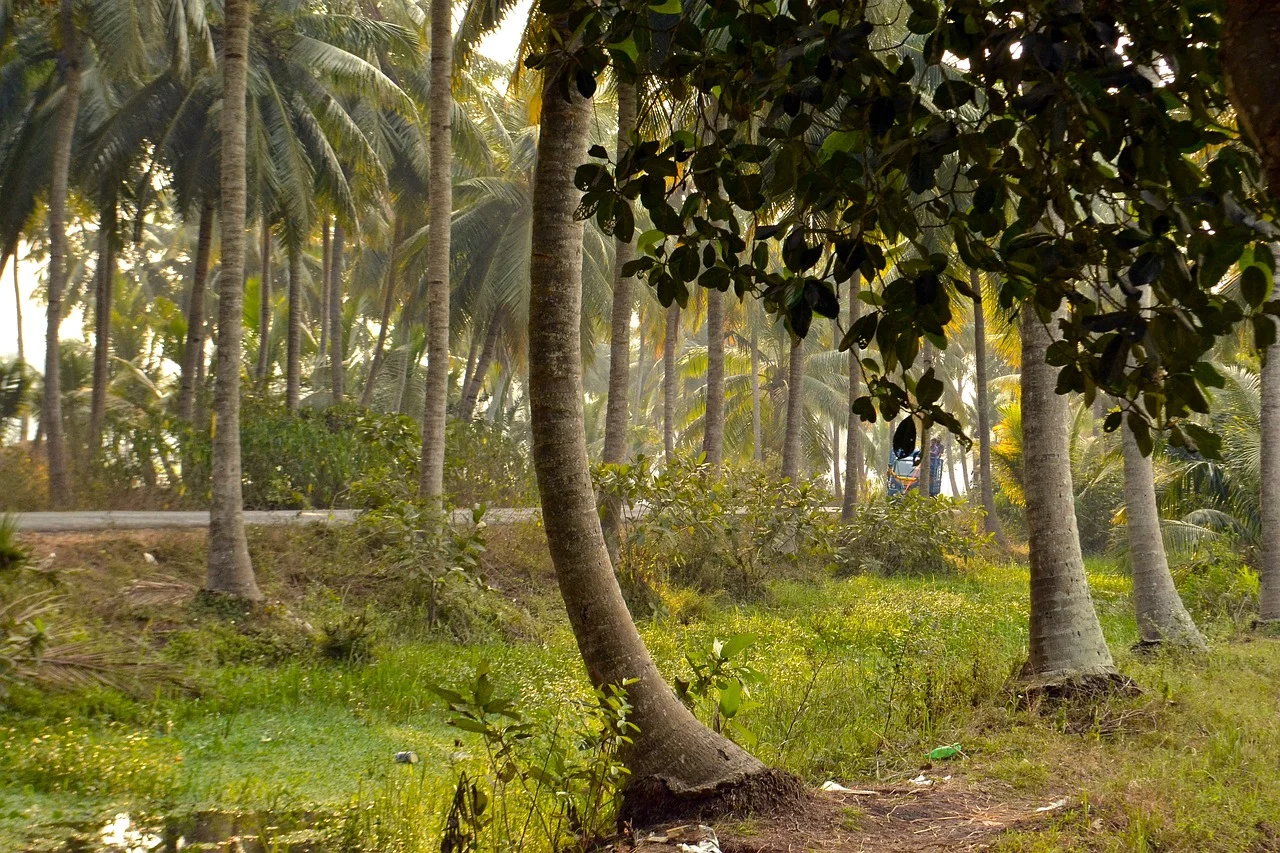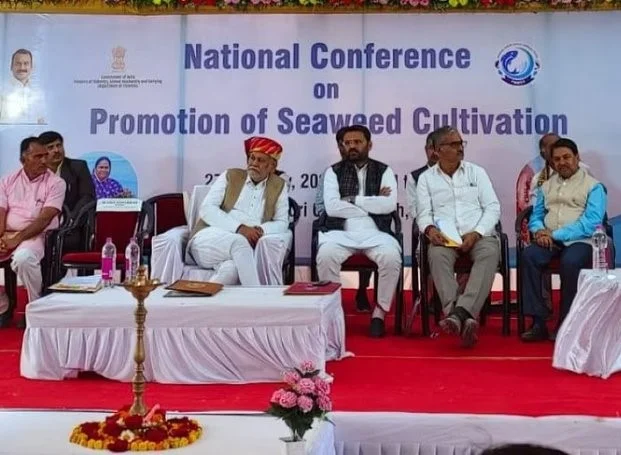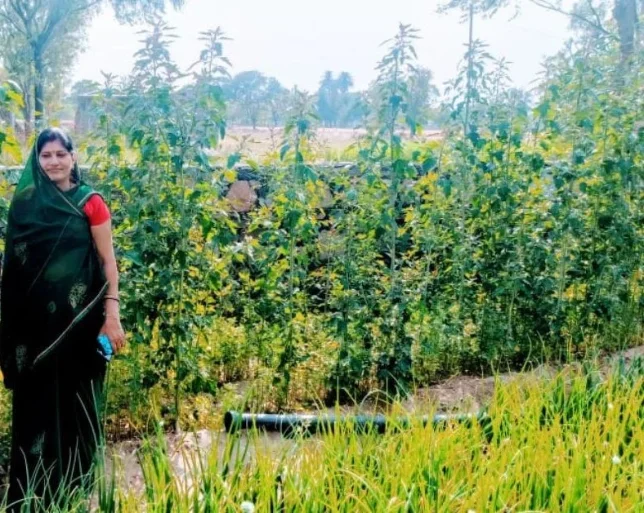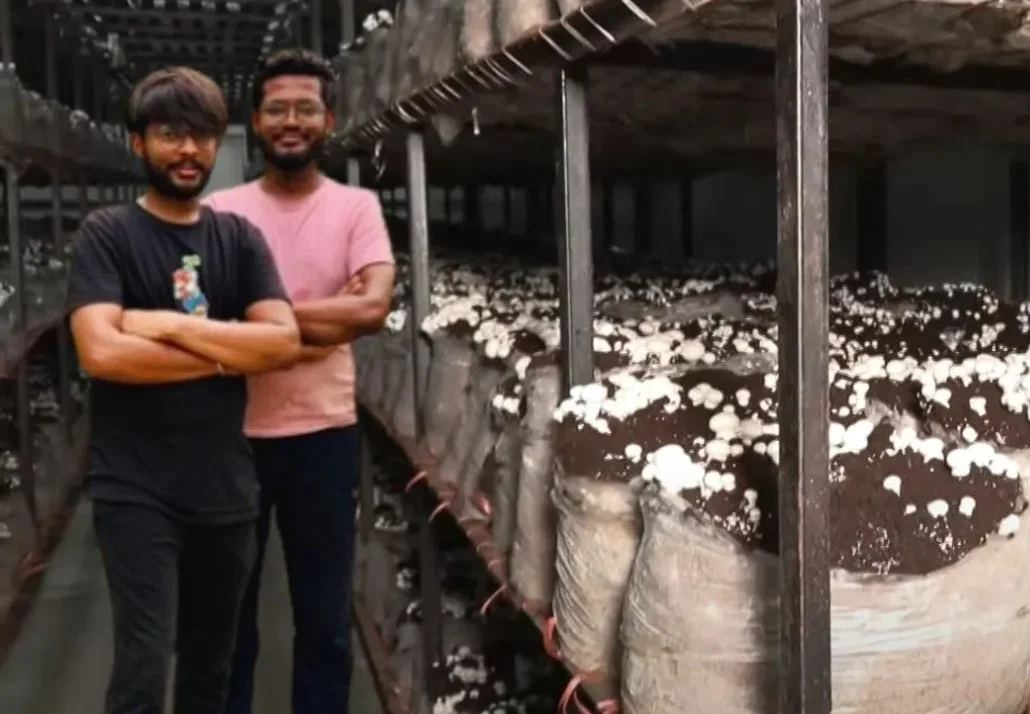Neha and Narendra Chavan, lifelong residents of Pune, embarked on an unexpected journey that would redefine their lives—the transition from city dwellers to permaculture farmers in the quaint village of Chiplun. Their story is a fascinating exploration of passion, inspiration, and a newfound commitment to sustainable living.
Originally, the Chavans were content with their urban lifestyle, owning a studio in Pune. However, their trajectory changed when they were presented with a unique opportunity—to create a film centered around agriculture. This venture led them on an eye-opening odyssey across India, exploring the diverse landscapes and agricultural practices that define the nation.
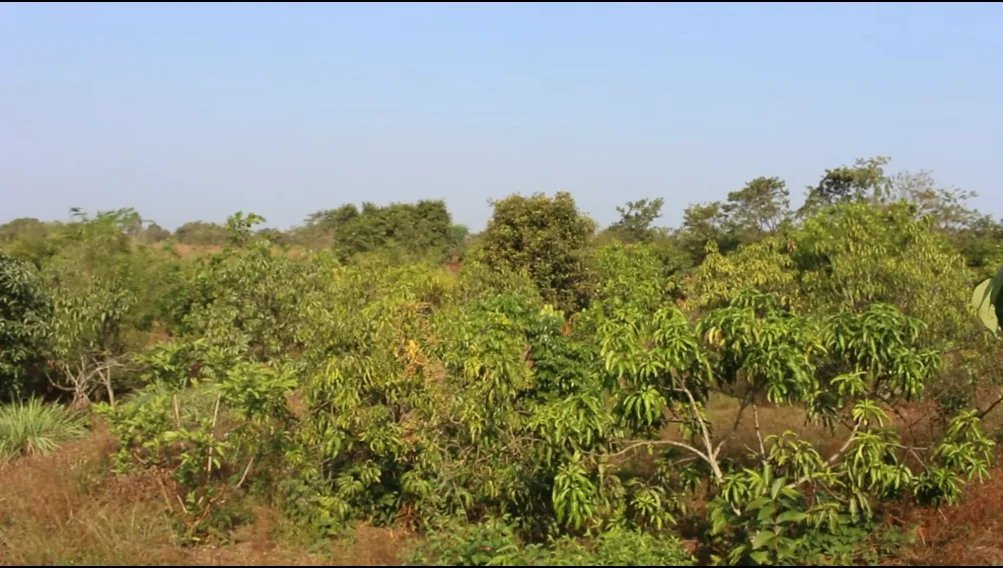
It was in Kerala that they had the privilege of interviewing the eminent M.S. Swaminathan, a stalwart in the field of agriculture. His insights into sustainable farming practices resonated deeply with the Chavans, planting the seeds of inspiration that would later blossom into a life-altering decision. As they meticulously sifted through the footage during the film editing process back in Pune, the couple found themselves increasingly captivated by the profound significance of agriculture.
The turning point came when their son, pursuing his master’s degree in the USA, expressed disinterest in pursuing a conventional business path. Confronted with a pivotal question—what next?—Neha and Narendra found themselves contemplating the prospect of venturing into agriculture. A pivotal conversation ensued, and with mutual agreement, they set forth on a new chapter, trading the urban bustle for the serene landscapes of Chiplun. This marked the beginning of their permaculture journey—a tale of rediscovery, purpose, and a commitment to nurturing the land that now defines their existence.
The Permaculture Odyssey Begins in Chiplun
Upon taking the bold leap into permaculture farming, Neha and Narendra Chavan faced the pivotal question of what crops to cultivate on the land Narendra had recently acquired in his ancestral village in Chiplun. Contemplating whether to adhere to the conventional crops of the Konkan region or explore alternative paths, the couple embarked on a journey of research that would shape the very foundation of their new agrarian lifestyle.
“We rejected the path of monoculture because we believe in the symphony of diversity. Nature doesn’t thrive in uniformity, and neither should our farm”
Delving into the intricacies of sustainable agriculture, they discovered the Japanese practice of permaculture, drawing inspiration from the natural, self-sustaining growth observed in untouched ecosystems. Recognizing the innate ability of nature to flourish without human intervention, the Chavans made a conscious decision to veer away from monoculture. Instead, they opted for a diverse cultivation approach, embracing tropical plants and acquiring an impressive collection of 147 different seed varieties. From olives and avocados to rambutan, lychee, apples, and dragon fruit, their farm became a vibrant tapestry of biodiversity.
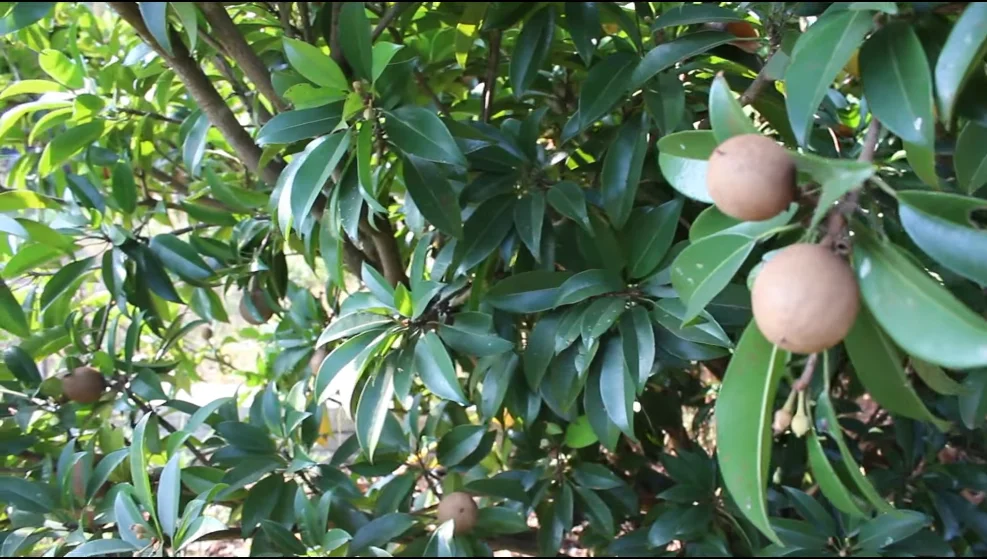
A key innovation was the deliberate avoidance of planting similar species in close proximity. Mango trees found companionship with mosambi and cashew trees, creating a dynamic landscape that not only mimicked nature but also acted as a natural defense against pests. With each tree hosting a different set of pests, the risk of infestations spreading was mitigated, making pest control a more targeted and manageable endeavor.
Beyond strategic planting, the Chavans implemented water harvesting techniques to ensure a sustainable water supply, enabling them to nurture their crops without additional watering, even during the typically arid month of May. The adoption of mulching, a practice involving the covering of soil with organic materials, further underscored their commitment to sustainable farming. Through these conscientious and environmentally friendly practices, Neha and Narendra Chavan transformed their ancestral land in Chiplun into a thriving testament to the potential of permaculture.

Seeds of Diversity and Culinary Surprises
In our quest for diverse and unique crops, we scoured the length and breadth of India, handpicking seeds that would contribute to the kaleidoscope of flavors on our farm. From Puttur in Karnataka, we brought home the essence of jackfruit, while a strawberry guava made its way to Chiplun all the way from Bengaluru. Our apple trees hail from the serene orchards of Shimla, embodying a testament to the rich agricultural tapestry of our nation.
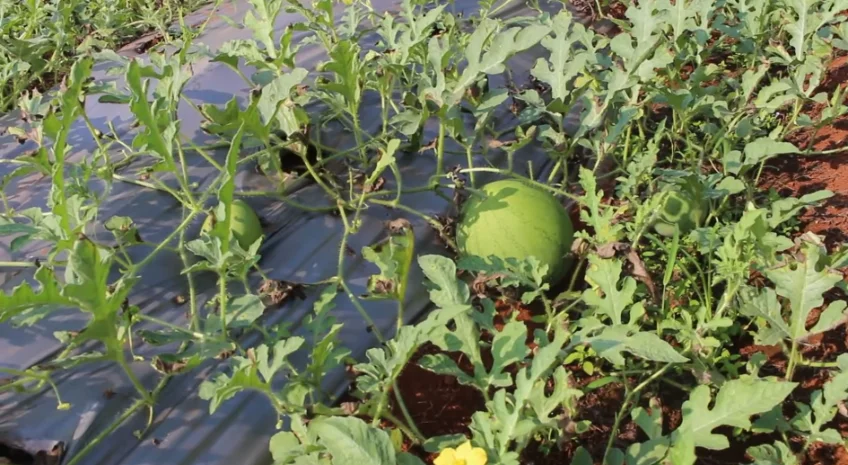
One particularly intriguing addition to our collection is the Miracle fruit—a plant that holds a culinary surprise. Neha shares, “If you indulge in 8-10 of these miraculous fruits, your taste buds undergo a temporary paralysis for about 10 minutes. It’s a sensory journey that leaves you unable to taste anything during that time.”
Also Read: Woman Cultivates Food Forest to Nourish and Uplift Orphans
Diversifying our offerings, we proudly cultivate the delectable yellow watermelon. Its exquisite taste has gained such popularity that, after harvest, it vanishes from our stalls within two days, sparking enthusiastic competition among buyers. Neha humorously remarks, “People literally fight for a slice of this succulent delight.”
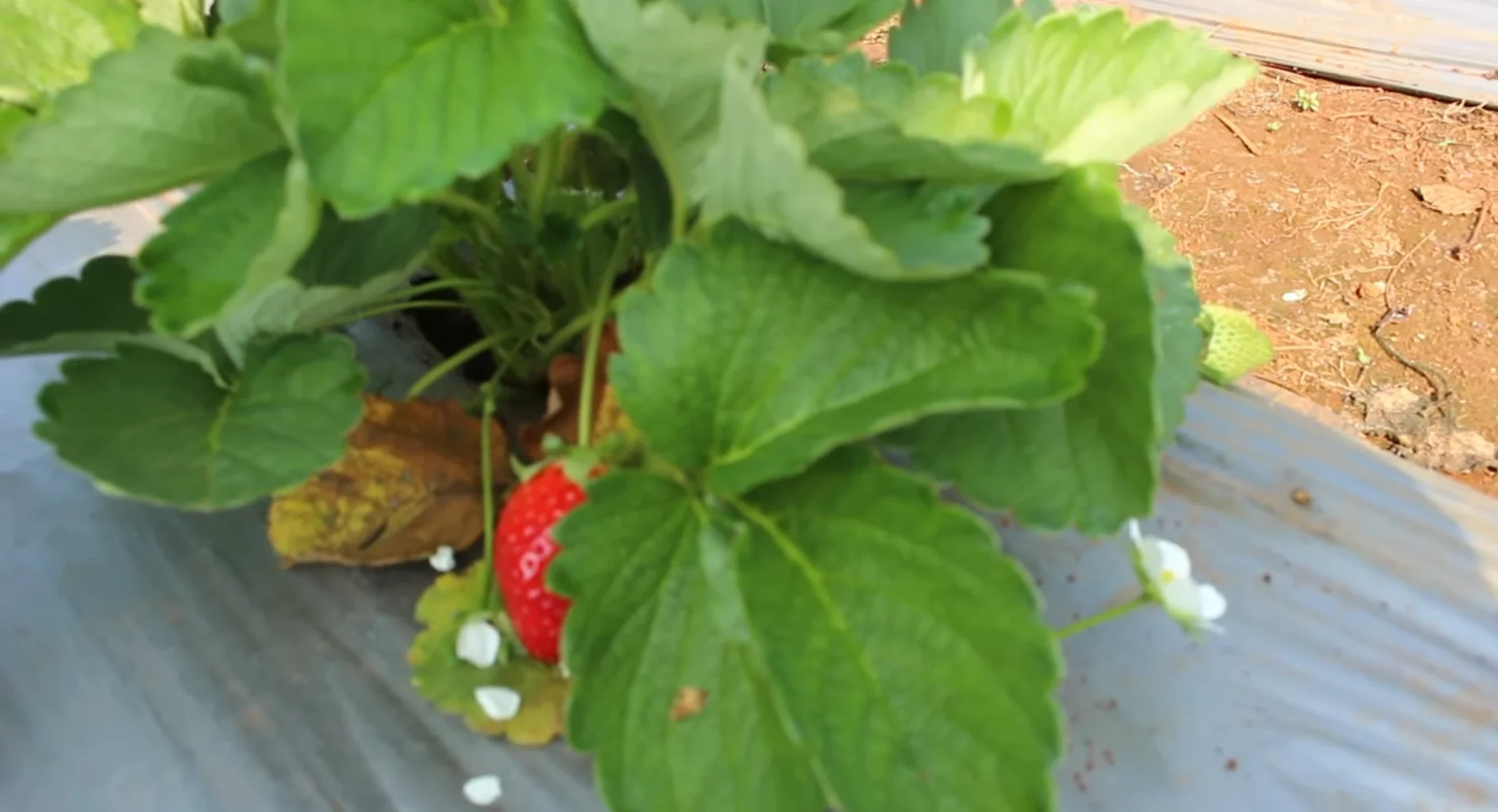
In a bold move to experiment with cash crops, we ventured into strawberry cultivation five years ago. Despite skepticism due to the Konkan region’s warm climate, Neha reflects, “People laughed at us for trying to grow strawberries in a place known for its heat. Yet, in the very first year, we produced the finest, sweetest strawberries. Today, we’ve pioneered the ‘pick your own strawberry’ concept, inviting visitors to experience the joy of harvesting these luscious berries straight from the source.”
The Permaculture Lifestyle Transformation
Since embracing the transformative journey into permaculture, the Chavans have found a remarkable shift in their health and lifestyle. Neha joyfully shares, “We haven’t encountered any diseases since making this transformation. Narendra, who was once frequently ill, is now the epitome of health. He actively engages in various roles on the farm, alternating between carpentry, plumbing, and farming. His physical capacity has not only increased, but he has shed excess fat and gained muscle. The need for medicines has become a thing of the past.”
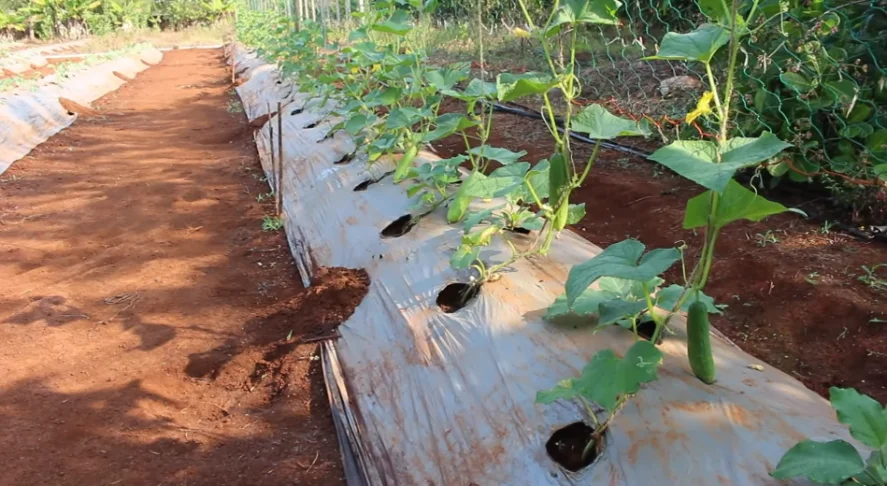
Their mornings are now accompanied by the melodious symphony of birds, a stark contrast to the urban clamor they left behind. The couple has not only cultivated crops but also their own furniture. Reflecting on the newfound lifestyle, Narendra remarks, “We have become self-sufficient, making our own furniture and enjoying the tranquil sounds of nature every morning.”
The positive impact of their permaculture lifestyle extends beyond their personal well-being. Neha notes, “Every day, 4-5 farmers visit our farm seeking advice. We’ve become a hub for knowledge exchange, fostering a sense of community among fellow cultivators.” Looking ahead, the Chavans aspire to establish a strawberry hub that will not only bolster their own cultivation but also serve as a resource for other farmers in the region.
Neha’s perspective on the financial aspects of permaculture is equally enlightening. She asserts, “With proper planning of finances and farm management, cash crops can generate income equivalent to what an IT professional earns in just three months. Beyond financial gains, the shift to permaculture has eliminated stress. No more 10-hour days in front of a computer screen. Living this life, you realize that humans don’t need an abundance of materialistic possessions to thrive.” The Chavans’ journey serves as a testament to the transformative power of sustainable living, proving that a harmonious connection with nature brings not only physical well-being but also financial stability and a profound sense of fulfillment.


